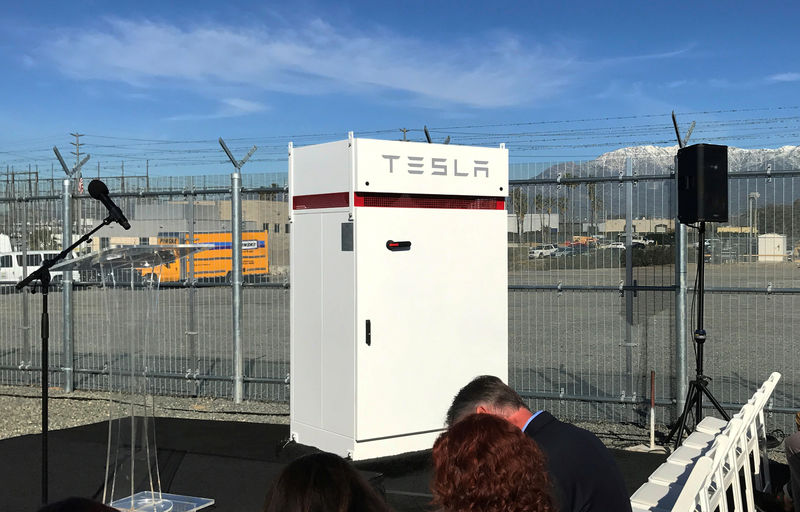By Nick Carey
DETROIT (Reuters) - Volkswagen (DE:VOWG_p) AG unit Electrify America said on Monday it will install Tesla (NASDAQ:TSLA) Inc battery storage packs at more than 100 charging stations across the United States to keep costs down for drivers charging electric vehicles.
Electricity users can incur high-demand charges from many U.S. utilities when they draw a lot of energy from the grid in a short time, which can happen charging an electric vehicle or a number of them at once at a single station.
"If you pass the demand charge onto the customer in a high-demand charge market" it can cost anywhere from $70 to $110 to charge a vehicle, Electrify America's chief operating officer Brendan Jones told Reuters. "If you did that, obviously nobody would buy an electric vehicle."
Tesla Powerpack battery systems draw power from the grid during off-peak hours and store it for use during peak hours to avoid or reduce demand charges. Electrify America will install most of its battery packs in areas of the United States where there is a higher concentration of electric vehicle owners, particularly on the West Coast and the Northeast.
During a conference call with analysts this week, Tesla Chief Executive Officer Elon Musk said "stationary storage" is a growth opportunity for the automaker.
"I expect that to grow, I mean, probably twice as fast as automotive for... a long time," Musk said.
VW has agreed to spend $2 billion nationwide on clean car infrastructure as part of an agreement with federal regulators after admitting to diesel emissions cheating.
A lack of EV recharging infrastructure is seen as a major barrier to mass adoption as consumers remain concerned over their limited range.
By this June Electrify America will have 484 charging stations built across America. The company is discussing using more battery storage packs with regulators for its next round of infrastructure investment, company CTO Jones said.
He said that apart from keeping charges down for consumers, Electrify America will examine the possibility of selling stored energy to lower charging stations' costs.

Global automakers are planning a $300 billion surge in spending on electric vehicle technology over the next five to 10 years, with nearly half of the money targeted at China, accelerating the industry's transition from fossil fuels and shifting power to Asian battery and electric vehicle technology suppliers.